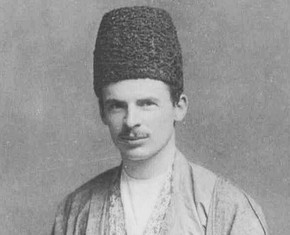The views expressed in our content reflect individual perspectives and do not represent the authoritative views of the Baha'i Faith.
About a year ago, I had the privilege of attending a weekend seminar that focused on one of the greatest heroines of women’s freedom and emancipation the world has ever known.
Becoming An Agent For Change – Being True To Yourself, held at the Desert Rose Baha’i Institute in Arizona, surveyed the life of the nineteenth century Baha’i heroine Tahirih, whose shining example can teach us to be true to ourselves. Much of the material in the course is based on Dr. Eileen Littrell’s doctoral thesis, Qurratu-l-Ayn Tahirih: A Study in Transformational Leadership.
Famed for her poetry; revered for the sacrifice of her life to the cause of women’s emancipation; the recipient of titles such as the The Lady of Persia, the Persian Joan of Arc, Crown of Gold, Solace of the Eyes, the Pure One, and Virtuous, Dr. Littrell’s course likened Tahirih to Abraham’s wife, Sarah, the Virgin Mary, and Fatimih, the daughter of Muhammad.
Known primarily in the western world for her heroic act of removing the veil from her face at a conference consisting mainly of men, Tahirih famously announced:
This day is the day of festivity and universal rejoicing, the day on which the fetters of the past are burst asunder. Let those who have shared in this great achievement arise and embrace each other…
Known also for the last words she uttered before being strangled to death at the orders of the clergy, Tahirih said: “You can kill me as soon as you like, but you cannot stop the emancipation of women.”
In the Middle East, where people are mostly unaware of her history and revolutionary religious beliefs, Tahirih is beloved as an unsurpassed mystical poetess. One of her poems ends with the realization that:
Whosoever has imbibed but one sip from Him
and has cleansed his eyes of all feebleness and impurities
will discern that the splendor of the true Beloved is plainly manifest
through the ornaments of glory and of the mystery of the inmost heart.
In another poem, she calls on us to heed her example:
Rise up, dear friend, / like the strong branch of a tree. / Knowledge will bring you, / I will help guide you, / to the One Who will make all secrets clear.
Later in the poem she urges us again to:
Rise up, dear friend, / rise up and sing, / rise up and fly on your wings.
Dr. Littrell asked us: “So how do we develop those wings?” Just like Tahirih did. When we have a firm faith in the future, when we remain steadfast in that faith, we develop inner joy. And Abdu’l-Baha tells us that:
Joy gives us wings! In times of joy our strength is more vital, our intellect keener, and our understanding less clouded. We seem better able to cope with the world and to find our sphere of usefulness. – Paris Talks, p. 109.
What better use of our time than to be true to ourselves, to not hide our truths for fear of being misunderstood or ridiculed. That happened to Tahirih. Persecuted, arrested, imprisoned, she ultimately gave her life rather than deny her beliefs or try to hide them. She remained joyous unto death.
Can we not be joyous and true to ourselves, also? We needn’t worry about a fate like Tahirih’s, since most of us are free to voice our thoughts and opinions. Many choose not to do so because we don’t wish to have others who disagree with our views think less of us. But when we choose to avoid honesty and serious discussion, we do both our acquaintances and ourselves a deep disservice. We need to both share our own views, and consider those that differ from ours. The Baha’i teachings tell us that “The shining spark of truth cometh forth only after the clash of differing opinions.”
Let us be like Tahirih, courageous in our actions, bravely speaking the truth as we understand it, based on firm and unwavering faith, not fearing the opinions of others yet mindful of their own thoughts and sensibilities. If we can act this way, and fully live into a courageous faith, others will give consideration to our views, our ways will set an example so that those with whom we interact will perhaps become more honest and fair in their own speech and actions, and because we were true to ourselves, we will become agents for change.
















Comments
Sign in or create an account
Continue with Googleor